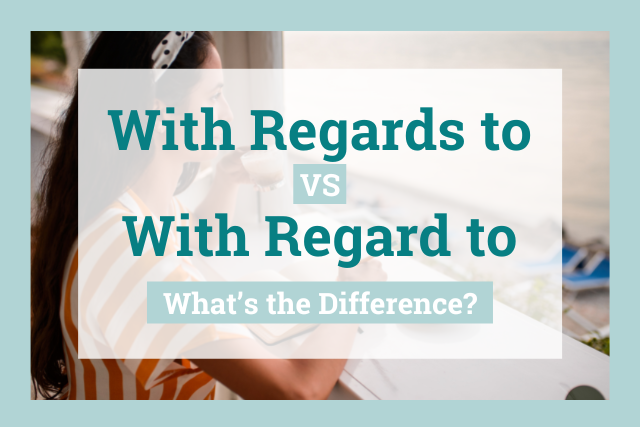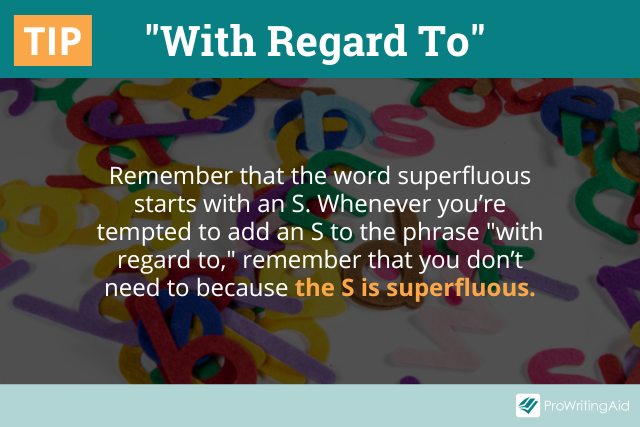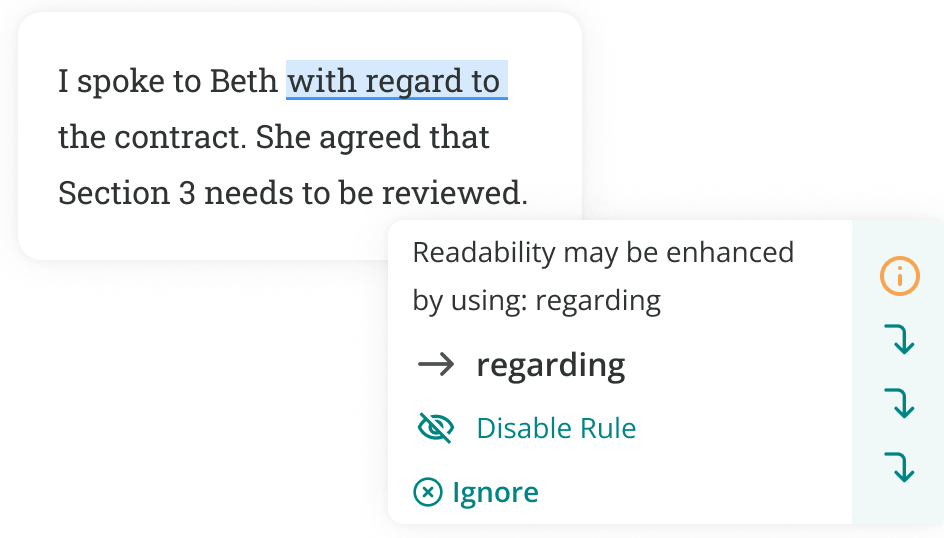With Regards To vs With Regard To: Which Is Correct?

Many English speakers get confused about whether to use with regards to or with regard to.
The correct phrase is with regard to, with the singular noun regard. It means the same thing as “regarding” or “in relation to.”
Even though adding an unnecessary S is a small error, it’s important to get the phrase right.
Making this grammar mistake can make you look unprofessional, especially in a workplace setting.
This article will explain the meaning of the phrase with regard to, and how to use it correctly.
Mục Lục
With Regard To or With Regards To?
You should always use with regard to, instead of with regards to. The version with an extra S is incorrect.
The noun regard means “respect” or “relation,” so saying with regard to is like saying “with respect to” or “with relation to.”

The plural form of this noun, regards, means “good wishes” or “affection,” which is significantly different from the meaning of the singular form.
You might say “Send my regards to your grandmother,” but you would have a conversation with regard to grandma’s garden.
It doesn’t make sense to refer to a topic using the phrase with regards to because it implies you’re sending good wishes to that topic. That’s why the correct phrase is with regard to, not with regards to.
One helpful tip to remember the correct spelling is to think about the fact that the word superfluous starts with an S.
Whenever you’re tempted to add an S to with regard to, remember that it’s incorrect because the S is superfluous.

Definition of With Regard To
According to the Collins English Dictionary, with regard to is a prepositional phrase that is used to indicate the subject that is being talked or written about.
With Regard To Meaning
We use the phrase with regard to to tell the reader that we are referring to a specific topic.
Synonyms for this phrase include about, concerning, and regarding.
For example, you could say “I am writing with regard to your daughter’s grades,” which has the same meaning as “I am writing to you about your daughter’s grades.”
Similarly, you could say “I’m afraid there’s nothing more we can do with regard to the neighbor’s complaint.”
That means “I’m afraid there’s nothing more we can do about the neighbor’s complaint.”
The phrase with regard to conveys a more formal tone than about or regarding.
You’ll probably see this phrase more often in classic novels than in modern novels, and more often in professional settings than casual settings.
Here are some examples of with regard to in popular books.
- “I sometimes have a queer feeling with regard to you—especially when you are near me, as now.”—Charlotte Bronte, Jane Eyre
- “No one knows with regard to death whether it is not really the greatest blessing that can happen to man; but people dread it as though they were certain it is the greatest evil.”—Plato, The Last Days of Socrates
- “Time does not really exist for mothers, with regard to their children. It does not matter greatly how old the child is—in the blink of an eye, a mother can see the child again as they were when they were born, when they learned how to walk, as they were at any age-at any time, even when the child is fully grown or a parent themselves.”—Diana Gabaldon, Voyager
Here are some examples of with regard to in a business setting.
- I’m writing with regard to the invoice I sent last week, which I still haven’t received payment for. Please send your payment as soon as possible.
- With regard to Section 7 of the proposal, I have several suggestions.
- You can talk to Diane if you have any questions with regard to the new HR policies. She knows the new handbook by heart.
Summary: With Regards To
Here’s a quick recap of the difference between with regards to and with regard to.
You should always use with regard to, which is the correct version of the phrase, and never with regards to, which is a common misspelling.
That’s because regard and regards mean different things, and only the singular form makes sense in this context.
If you’re trying to be more concise in your writing, you might consider using a shorter version instead.
ProWritingAid’s Readability Report can help you make sure you’re using the clearest and most accessible word choices.

You could use regarding, concerning, or about to mean the same thing as with regard to and improve readability, though these alternatives do not carry the same formal tone.
Take your writing to the next level:







